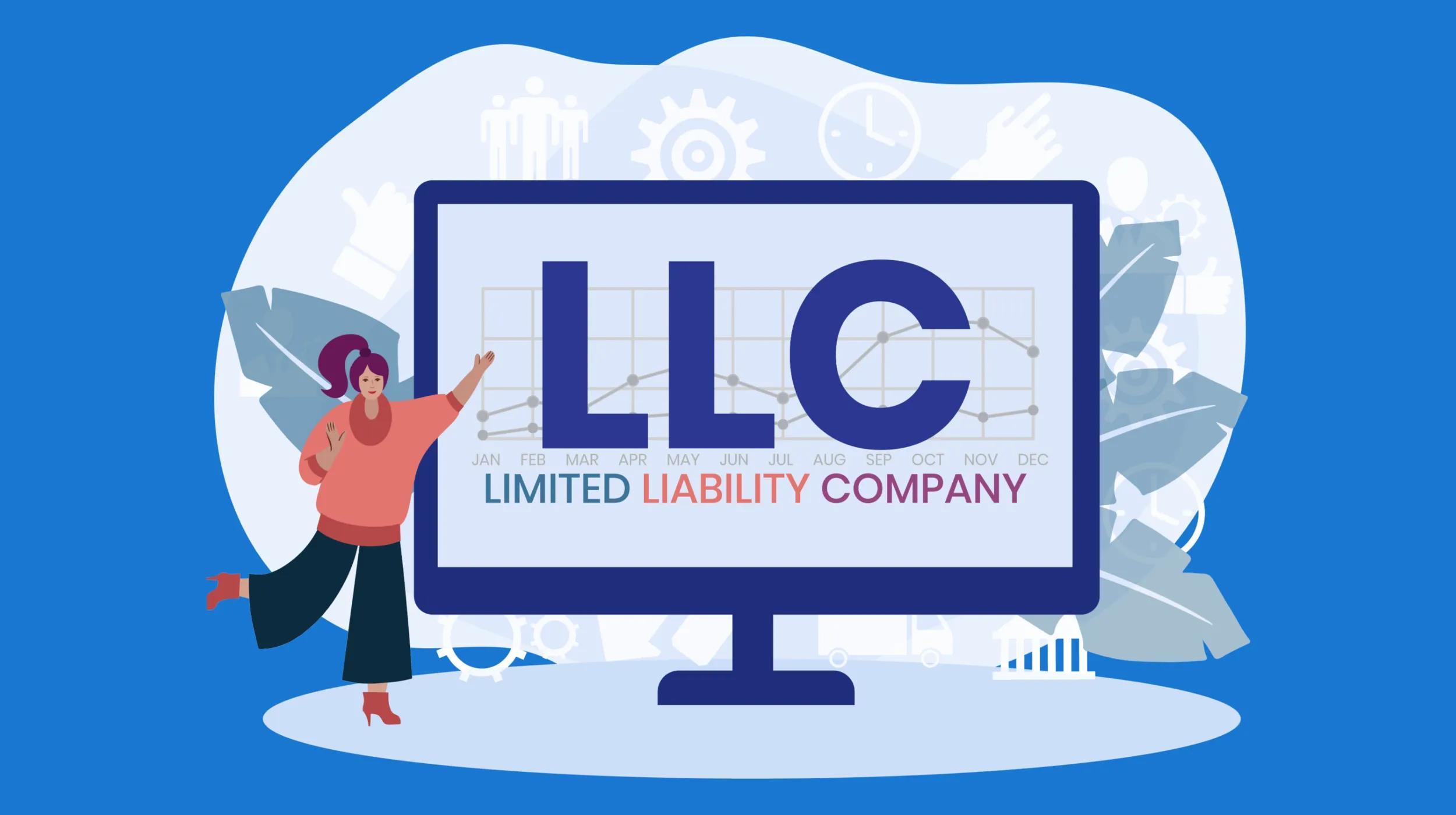The notion that every business begins with a great idea can inspire the entrepreneurial spirit in just about anyone, but it doesn’t quite capture the full story. To transform your idea into an actual company, you’ll need to register your business.
Registering your business determines who owns the business, how you’ll be taxed, and other critical details about how your business will operate.
Business registration is especially important for partnerships, or businesses that you’re running with other people, but all entrepreneurs should plan to eventually register their business.
In this article, you’ll learn how to register a business in the United States and gain access to registration instructions and supporting materials for your specific state.
Want to jump ahead? Use the below links to find your state's resources for each action:
- Confirm your business name is available
- File your business application
- Apply for a state tax ID
- Apply for any applicable licenses or permits
Choose a business structure

From the outside, all businesses might seem relatively similar — one or more people selling goods or access to their services.
However, there are several different kinds of business structures, each with specific benefits and challenges. The type of structure you choose will determine business ownership, liability, and taxation.
The main types of business structures you can choose are:
- Sole proprietorship — A sole proprietorship is a simple business structure where one individual owns and operates the business. The owner has full control but also unlimited personal liability. Generally, there's no need to register with the state, but you may need local permits or a DBA ("Doing Business As") registration.
- Partnership — A partnership involves two or more individuals managing and operating a business together. Partners share profits, losses, and liabilities. A general partnership typically doesn't require state registration, but a limited partnership (LP) or limited liability partnership (LLP) does. A partnership agreement is advisable, and local permits may be needed.
- LLC — An LLC combines the liability protection of a corporation with the tax benefits of a partnership. Owners, known as members, are not personally liable for business debts. Registering with the state is required by filing articles of organization, and compliance with ongoing state regulations is necessary.
- Corporation — A corporation is a legal entity separate from its owners, providing limited personal liability. It requires registration with the state by filing articles of incorporation. Corporations face more regulatory requirements, including maintaining corporate bylaws and holding annual meetings. State registration is essential for legal recognition and operation. See differences between LLC and Corporations here.
You can learn more about each one and which one works for your business goals in the "How to start a business" article here.
Register your business with your state

Part of registering your business involves registering with your state government. This will let you legally operate your business in the state and set you up for future tax filings.
How you register and how much it costs will vary based on your state. For example, in Virginia, it costs $100 to form an LLC, but this costs $50 in Colorado.
Disclaimer: Fees are accurate at time of publishing, please refer to your specific state to confirm current pricing.
Keep reading this section to learn about the state registration process and to find links to filing your business application.
Confirm the business name is available
First, you’ll need to confirm your business name is available for registration. This will reserve this name for your business, so no one else in your state can use the same name as you.
Select the link for your state from the list below to access a lookup tool to see if your business name is available — however, please note that these tools are not necessarily a definitive way of determining that the name is available.
When checking for a business name, be sure you also consider whether a website domain is available for that name. You can use GoDaddy’s domain name search tool to check your preferred business name’s availability.
Having a domain name that matches your business name makes it easier for customers to find your website.
File your business application
Once you have confirmed that your desired business name is available in your state, it’s time to begin filing your business application.
This might also be a great time to purchase your business domain, so you can claim the domain that works best for your business and get started with establishing your online presence.
Find your state in the table below to get started with the business application process.
Apply for state and federal tax numbers

Depending on your business structure, you may be required to file federal and state taxes on behalf of your business.
Federal: Obtain an employer identification number (EIN)
An employer identification number (EIN) is also known as your federal tax ID. This number is a unique, 9-digit number issued by the IRS to identify your business for tax administration purposes.
New businesses should obtain an EIN to:
- Open a bank account
- Hire and pay employees
- Apply for a business license
- Filing tax returns
You can get your EIN by applying online through the IRS website.
State: Apply for a state tax ID
In addition to your federal tax ID (i.e. your employer identification number or EIN), you may need to obtain a state tax ID if your business will pay state taxes, such as income taxes or employee taxes.
Find your state in the table below to get started with confirming whether you need a state tax ID and, if necessary, applying for one.
File taxes on a timely basis
Filing taxes on time is as important for your business as it is for you as an individual. Business taxes can be filed online or by mail, but are subject to different deadlines than your personal taxes.
For more information, check out the IRS business taxes website, which has a great deal of helpful information and resources.
If you’re pressed for time, consider hiring a CPA to ensure your taxes are filed correctly and on time.
Determine if your business requires a license or permit

Businesses will need to obtain a license or permit if their industry or activities are regulated by a federal and/or state agency.
Federally mandated permits impact a fairly narrow group of business activities, ranging from manufacturing or selling alcoholic beverages to operating commercial fisheries.
To learn whether your business might need a federal license or permit, check the Small Business Administration website, which lists the business activities that are of concern on a federal level, and how you can go about applying for the associated permit.
State licenses and permits apply to a wider range of businesses, but as you might expect, they can vary a great deal from state to state.
We recommend checking with your local Secretary of State office before beginning your registration process to understand what sort of licenses or permits you might need based on your industry and your state’s regulations.
Common required business license are a seller’s permit (also known as a sales tax permit), a reseller permit (to make tax-exempt purchases) or a wholesale license (for selling wholesale)
Apply for the appropriate license or permit
In the below table, you can find your state’s licensing requirements and begin the application process. While not all states require licensing, your city or county may have special requirements.
When that is the case, the state website will typically direct you to your county or city sites for more details.
Get any required insurance
In addition to the licenses and permits required by the federal, state, or local government where you intend to operate your business, you may also need to obtain business insurance.
The federal government requires all businesses with employees to have workers’ compensation, unemployment, and disability insurance.
There are also state-specific and industry-specific insurance requirements — consult your state’s Secretary of State office to learn if you are required to purchase certain insurance types for your business.
Even if this is not strictly required, some business owners may appreciate a shield from unexpected costs, especially when you, as an owner, are not protected from personal liability.
Apply for trademarks or copyrights

Your business idea and products are valuable and worth protecting! By applying for the appropriate trademarks or copyrights, you can ensure that your business and livelihood are protected from use by others.
A trademark can be applied to business assets, such as a name, logo, or slogan, to protect it from other businesses.
Any business that considers its branding a distinguishing factor that separates it from the competition might want to invest in a trademark.
For example, a trademark on your business slogan or logo means that a competitor down the street can’t market their products or services with the same language or imagery. The US Patent and Trademark Office can help you get started with applying for a trademark.
To register for a copyright, visit the US Copyright Office for instructions.
If you want to delve deeper into this topic check out our article on trademark symbols.
Register a business: Real-life examples
Here are two examples of registering a business that should make this process a bit easier to digest.
Example 1: Registering a sole proprietorship or partnership
Sarah wants to open a bakery in her hometown, Sweet Delights, and plans to operate as a sole proprietorship. She decides to use a business name different from her legal name.
Process:
- Research requirements: Sarah contacts her local county clerk's office to understand the requirements for registering a sole proprietorship in her state. She learns that she needs to register a "Doing Business As" (DBA) name since she's not using her personal name for the bakery.
- Register DBA name: Sarah fills out the necessary paperwork to register "Sweet Delights" as her DBA with the county. She also checks if there are any additional local permits required for operating a food business.
- Publication requirement: If her state requires, Sarah publishes a notice in the local newspaper announcing the establishment of "Sweet Delights." She submits proof of publication to the county clerk's office.
- Budget for fees: Sarah pays a small fee for the DBA registration, which she had already included in her budget. The newspaper publication incurs an additional cost.
- Tax registration: Sarah checks with the state tax board to ensure she has the necessary tax identification numbers and understands her sales tax obligations.
- Business launch: With all requirements met, Sarah opens Sweet Delights and begins serving her community.
Example 2: Registering an LLC
Alex and Jamie want to start a tech consulting business, Tech Innovators LLC, to provide IT solutions to local businesses. They choose to form an LLC for liability protection.
Process:
1. Research requirements: Alex and Jamie research the state requirements for forming an LLC. They find that they need to file articles of organization with the state. If you’re starting your own LLC or planning to transfer your LLC to a new state, it’s helpful to review step-by-step instructions. Here are some state-by-state examples:
For a complete overview that applies to any state, check out this general guide on how to start an LLC.
2. Choose a name: They ensure "Tech Innovators LLC" is available by checking the state’s business name database. They reserve the name to prevent others from using it during the registration process.
3. File articles of organization: Alex and Jamie complete and file the articles of organization with the state, paying the required filing fee. This officially establishes Tech Innovators LLC as a legal entity.
4. Create an operating agreement: Although not always required by the state, they draft an operating agreement outlining the management structure and financial arrangements of the LLC.
5. Obtain an EIN: They apply for an Employer Identification Number (EIN) from the IRS, which is necessary for opening a business bank account and hiring employees.
6. Register for state taxes: They register with the state tax agency to understand and fulfill their tax obligations, including sales and use tax if applicable.
7. Launch business: With the LLC officially registered and all legal requirements fulfilled, Alex and Jamie open Tech Innovators LLC and begin accepting clients.
Related: Sole proprietorship vs LLC: Full comparison
Get local assistance and join small business groups

Starting a business can be a daunting challenge, but you don’t have to go it alone. Utilizing local resources, such as grants or webinars on topics helpful for entrepreneurs, can give your business a competitive advantage in the form of financial resources or valuable knowledge.
Additionally, consider connecting with other small business owners in your area — you can share insights about the customers in your community, run cross-business promotions, and strengthen your business’ ties to your area.
The table below provides links to resources for each state, but you should also look into small business resources that are specific to your county, city, or region.
Conclusion
Starting a new business is a thrilling experience, but amidst all the excitement, it’s important to remember the administrative tasks required to operate in your state.
In this article, we’ve covered all the essential steps and provided state-specific resources to help you manage these tasks, from choosing your business structure to picking the perfect name to all the applications associated with running your business, paying taxes, and getting the required permits, insurances, and protections.
While it might seem daunting, you’re not alone — there are resources in your city, county, or state to support you, and many small business owners that you can network with and learn from








